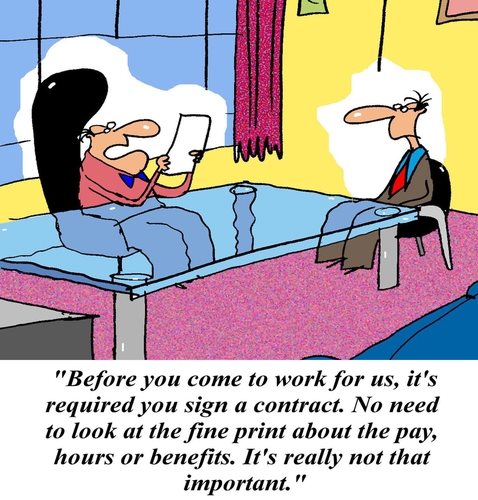Get It Together: 8 Organizational Tips for Legal Marketing Campaigns

One of the toughest things about putting together a marketing plan is figuring out how you'll organize your team and put it all together. Because smaller law firms often use attorneys and other staff members to cover some marketing responsibilities, it's quite possible that the people involved on your marketing team aren't full time marketing professionals and aren't used to organizing whole campaigns. This guide will give you some tips on how you can make your marketing efforts more efficient and organized, making it much easier and faster for you to put together the marketing campaigns you're dreaming about.
Tip #1: Delegate Responsibilities and Make Goals
If it's too much work for one person, you're not helping anyone by trying to do it all yourself. Put together a team of people who can work on your marketing campaigns, and look at what strengths each individual team member brings to the table. Delegate specific responsibilities, and make sure that this delegation of responsibilities is written down and emailed to everyone after the meeting is over.
You'll want to make sure that every person has set goals and a set time to achieve them by. If people have a delegated responsibility but no set goals, it's likely that they'll get bogged down in details.
Tip #2: Budget Enough Time
This is a place where many marketing plans start falling apart. If you start with a schedule that's too optimistic, and don't budget enough time, soon you'll be falling behind. When you fall behind, you start leaving parts out of your marketing plan, and it usually won't be the parts that you can most afford to lose.
Be realistic when you set your initial time expectations for your projects, for every team member, and if it's a task they've never performed before make sure that they have some additional time built in. This will help prevent people from becoming overwhelmed, which can sometimes lead to marketing tasks being neglected.
Tip #3: Make Schedules For Every Marketing Team Member
Make sure that every person who is doing something for marketing has a schedule. While you don't need to make it a schedule with specific times for specific activities, it should at least show what days, weeks, and months the person's marketing duties should be performed, and how long they're supposed to spend on those duties.
Everyone receiving a schedule should have input into it, and they should also be made aware that the schedules aren't set in stone. It's much better to have some schedule flexibility, in case it turns out that part of your marketing plan is working significantly better or worse than you had anticipated. Just make sure that people know that if the schedule isn't working out, they should come back and figure out one that will, rather than just letting work fall by the wayside.
Tip #4: Get Software To Make You More Efficient
Purchasing some software packages can make it significantly more easy for you to do the kind of marketing you want to do in the time you have to do it. For example, if you download software that helps you post to social media websites and keep track of what people are saying about you on social networks, you'll be saving a great deal of time over using each site individually and trying to search for mentions of your own firm's name.
If some part of your day seems like it's being wasted on website inefficiency, it's a good thing to ask whether there's some software that can actually help out and make it easier for you. You're probably not the first or the last person to have a problem like yours, and programs will often exist for the exact problem you're having.
Tip #5: Do Analytics On a Scheduled Basis
You should periodically analyze your marketing campaigns to make sure that they're working according to plan. Online marketing makes this particularly easy, with programs like Google Analytics. Too often, analytics is the first thing that falls by the wayside when people get busy with other aspects of their job.
This is a huge mistake: you won't know how to achieve your goals if you don't look back and see how well you've done with techniques you've already tried. Your data is incredibly valuable—by just letting it languish without paying any attention to it, you're wasting time and money. Using your data effectively means that when you spend money on marketing and advertising, you're spending it on the right sites, the right times, the right demographics. Without those analytics, you're like someone fumbling in the dark toward a good idea. Let analytics be your flashlight.
Tip #6: Think Like a Scientist (A/B Testing)
A hallmark of the scientific method is also part of today's online marketing world. A/B testing is basic experimentation in a scientific way. The biggest part of A/B testing that it's important for marketers to get right is the idea of changing only a single variable at a time. If you change multiple variables at once, you won't know which one actually affected your conversion numbers, bounce rate, or anything else you decide to test for.
It may seem a little monotonous to only change one thing at a time, but in the end, you'll have significantly better data to work with. Your data is much less likely to lead you to the wrong conclusion when you're rigorous in your A/B testing.
Tip #7: Get Regular Progress Updates
Members of your marketing team, once they have goals and schedules, should be prepared to send regular progress reports that tell you how close they're coming to achieving their goals. This way, if someone starts to fall behind, you can figure it out quickly and re-budget time more realistically.
Once a week should usually be enough for progress updates, and someone with a minor or specialized role may only need to update the team every two or four weeks. Regardless, make sure there is a progress updating schedule so that everyone knows who's doing what and how much work has already been done.























